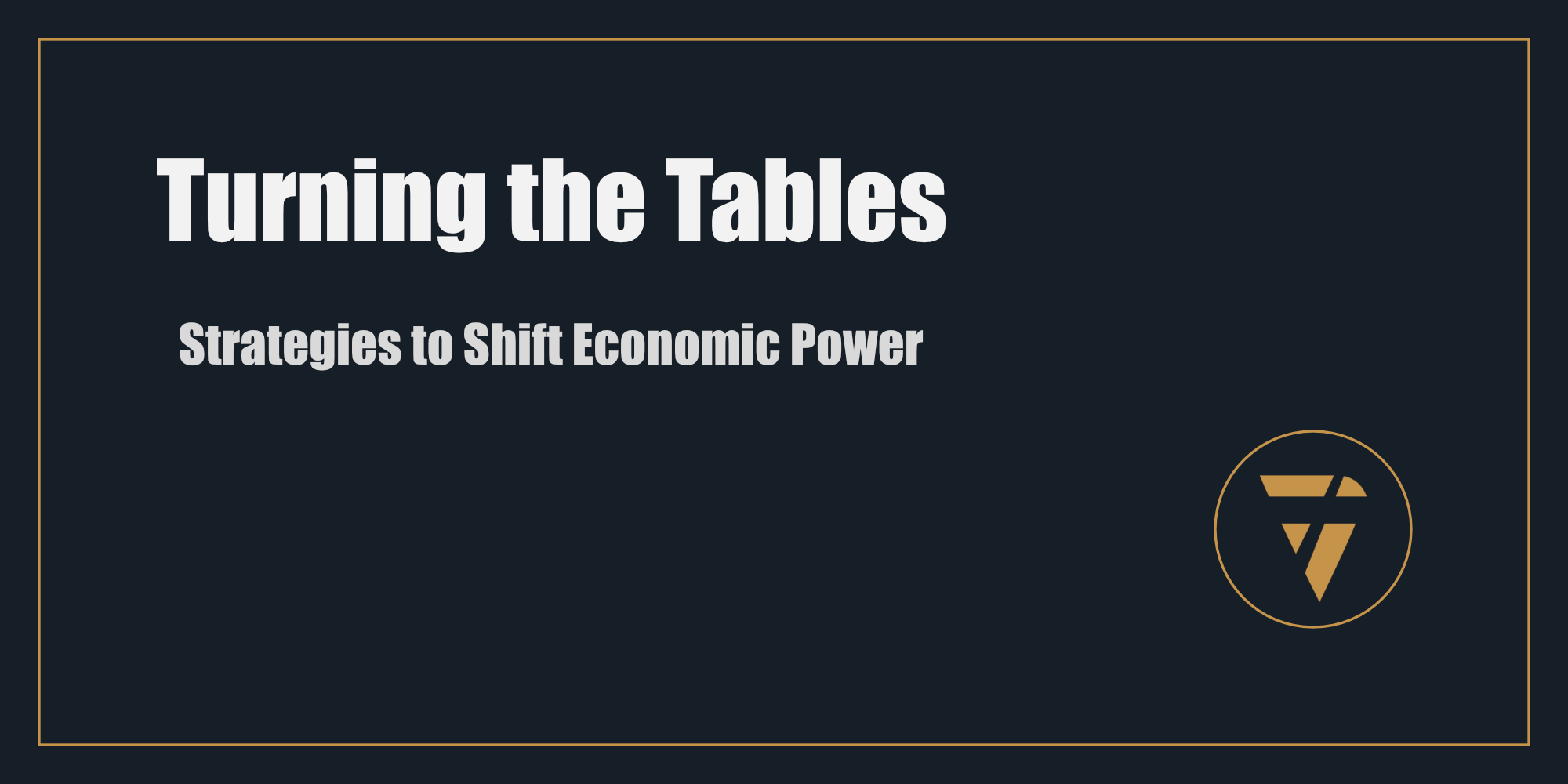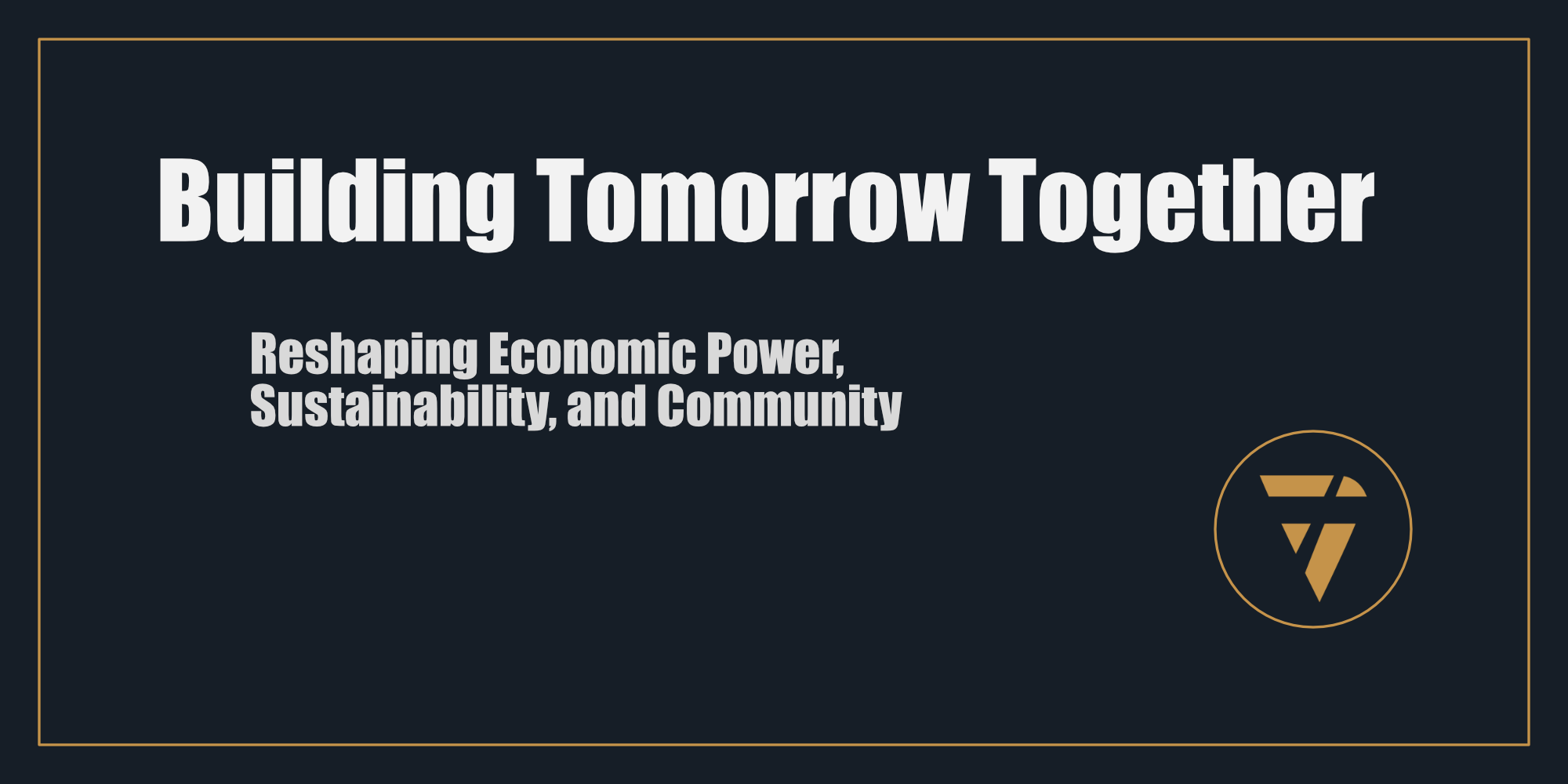Turning the Tables
Strategies to Shift Economic Power

The rules that shape our economy, environment, and communities weren’t forged in stone; they were written to serve a purpose. When that purpose no longer aligns with fairness or sustainability, it’s our responsibility to rewrite them. The question isn’t whether change is possible, it’s whether we’ll rise to the challenge.
Why Systems Need Rewriting
The systems we live within—economic, social, and environmental—often feel immovable. Yet history shows us that change is always possible when driven by collective action. From the abolition of outdated laws to the rise of renewable energy, transformation begins when people dare to imagine a different reality.
Today, we’re standing at a crossroads. The future can either deepen inequality and environmental degradation or move toward equity, sustainability, and shared prosperity. The time to act is now. Let’s dig into three critical strategies to drive systemic change.
1. Challenge and Transform Fiscal Rules
The Problem:
Fiscal policies often masquerade as impartial, yet they disproportionately favour the privileged. From tax breaks for corporations to austerity measures that stifle public investment, these rules perpetuate inequity.
A Path Forward:
Educate: Simplify fiscal jargon into relatable terms. Use workshops and webinars to highlight how these policies impact everyday lives.
Engage: Partner with grassroots organizations to form coalitions. Collaboration strengthens advocacy and diversifies perspectives.
Act: Use storytelling and data visualization to influence public opinion and policymakers. For example, a compelling infographic showing how tax loopholes widen inequality can be a powerful tool.
Case Study:
Consider Iceland’s post-2008 financial crisis reforms. By rejecting austerity, holding banks accountable, and reinvesting in public welfare, they became a global example of fiscal reform serving the public good.
2. Build Fair, Sustainable Systems
The Problem:
Sustainability is often reduced to greenwashing—a marketing buzzword detached from meaningful action. True sustainability demands bold experiments in equity and environmental balance.
A Path Forward:
Pilot Local Programs: Start small. Whether it’s community-led renewable energy projects or cooperative housing initiatives, localized efforts demonstrate feasibility and inspire replication.
Adopt Community Wealth-Building Models: Shift from extractive practices to shared ownership models. Encourage investments in local businesses and infrastructure to retain wealth within communities.
Innovate Collaboratively: Form partnerships with governments, NGOs, and private sectors to scale sustainable solutions. Joint efforts amplify impact and resource efficiency.
Case Study:
Take the Mondragon Corporation in Spain, a federation of worker cooperatives. Their model demonstrates how businesses can be profitable while prioritizing shared ownership and community impact.
3. Empower Communities to Lead Change
The Problem:
Disempowered communities often lack the tools, networks, and resources to challenge systemic inequities.
A Path Forward:
Train Advocates: Equip individuals with skills in lobbying, resource mobilization, and coalition-building through workshops and mentorship programs.
Provide Digital Infrastructure: Build online platforms that connect activists with resources, funding opportunities, and communication tools.
Celebrate Victories: Highlight incremental wins—like policy changes or successful grassroots campaigns—to sustain momentum and inspire broader participation.
Case Study:
The Standing Rock Sioux Tribe’s fight against the Dakota Access Pipeline is a powerful example of grassroots organizing. Their combination of legal challenges, community engagement, and media outreach reshaped the conversation around indigenous rights and environmental justice.
4. A Collective Resolution: The Power of Interconnection
These strategies—challenging fiscal rules, building sustainability, and empowering communities—aren’t isolated efforts. They reinforce one another. When people understand the systems shaping their lives, they can advocate for sustainable, equitable alternatives. When sustainability is grounded in fairness, it becomes a shared mission rather than a privilege.
Actionable Takeaways
- Host Workshops: Use simple language to demystify complex policies.
- Start a Pilot Program: Experiment with localized solutions in your community.
- Build Coalitions: Partner with diverse groups to amplify impact.
- Celebrate Progress: Use small wins to inspire greater participation.
Join the Movement
The future isn’t written—it’s built. What role will you play?
Educator? Advocate? Innovator?
Share your ideas, subscribe for more insights, or join our upcoming webinars to turn resolutions into realities.
Let’s not just imagine change—let’s build it, together.
*this piece is a companion to :

This Substack is reader-supported. To receive new posts and support my work, consider becoming a free or paid subscriber.
This is what I’m working on. Tell me what you think, I enjoy the conversation! Subscribe and follow the work in real time.
Thanks!
B
Success isn’t just policy change, it’s empowering communities to see themselves as changemakers. Celebrate every win, big or small, and use it to fuel the next.
PS -





